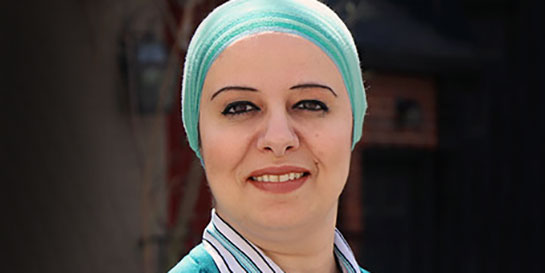
HEALIO - High HDL cholesterol levels alone may not be cardioprotective for midlife women; estradiol may influence the risk for cardiovascular disease, according to data from the SWAN Heart study. “Levels of endogenous estradiol may play an important role in cardioprotective associations of HDL cholesterol,” said EPI's Samar R. El Khoudary.

TRIBUNE-DEMOCRAT - Gov. Tom Wolf’s administration has awarded a $2.5 million contract to research the potential health effects of hydraulic fracturing in the state in two epidemiological studies to be conducted over the next two years. EPI's Evelyn Talbott will investigate the relationship between hydraulic fracturing and the development of childhood cancers, while BIOS' Jeanine Buchanich will examine acute conditions, such as asthma and birth ...

KNOWABLE MAGAZINE—Instead of trying to analyze how society functions from the top down, agent-based modeling tackles the problem from the other end, focusing on individuals."We have (modeled) every person in the US, where they live, where they go to school, where they go to work," says EPI's Donald Burke of PHDL's FRED. This approach both predicts the pandemic's future trajectory and gives insights into the effects of public health strategies.
...

PITTWIRE - Finals are here. Winter is coming. Pitt psychiatry and epidemiology expert Rebecca Thurston offers reminders to care for yourself during tough times.

NEWS MEDICAL - Changes in hormones, body composition, lipids, and vascular health during the menopause transition can increase a woman's chance of developing cardiovascular disease after menopause, the American Heart Association said in a scientific statement. EPI's Samar R. El Khoudary, who chaired the AHA writing group, stressed "monitoring women's health during midlife and targeting this stage as a critical window for applying early intervent...

EPI's Anne Newman received the American Heart Association's 2020 Clinical Research Prize based on her extensive research career focused on aging, including the determinants of physical and cognitive function, as well as successful aging and longevity. She is an expert in the study of cardiovascular disease, aging and body composition, and sarcopenia (muscle loss) and physical functioning.
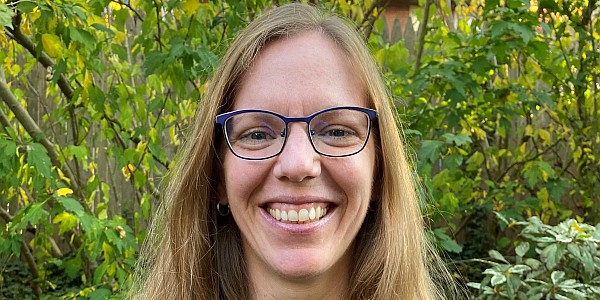
THE PHILLY VOICE — Wendy King, associate professor of epidemiology, found that higher physical activity levels after bariatric surgery lessen depressive symptoms and improve mental and physical quality of life, irrespective of weight loss. Gretchen White's study identified patient characteristics, such as insufficient social support and unrealistic weight-loss expectations, that can predict not being satisfied long-term with Roux-en-Y gastric by...

NEUROSCIENCE NEWS - A metabolite produced following consumption of dietary soy may decrease a key risk factor for dementia--with the help of the right bacteria. According to a discovery by EPI's Akira Sekikaw a , elderly Japanese men and women who produce equol--a metabolite of dietary soy created by certain types of gut bacteria--display lower levels of white matter lesions within the brain.
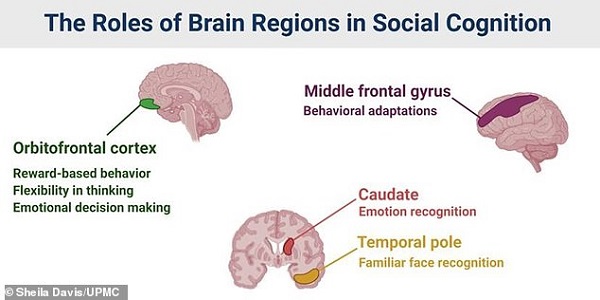
US NEWS (HealthDay News) — Older adults who get together with friends, volunteer, or go to classes have healthier brains, which could help them ward off dementia, according to a new study led by postdoc Cynthia Fox of EPI. Being socially engaged—even moderately—with at least one relative or friend activates parts of the brain needed to recognize familiar faces and emotions, make decisions, and feel rewarded. "We need to do more research on the d...

THE WASHINGTON POST - Despite the predominance of the coronavirus pandemic among national priorities, the paper's editorial board urges the dedication of public health funds and attention to the ongoing opioid crisis, citing data gathered by HPM's Hawre Jalal and EPI's Donald S. Burke which suggests that the 2018 decline in mortality traced to a short-term drop in the supply of a particularly deadly Chinese-made synthetic opioid, carfentanil, ra...

STUDY FINDS – While many seniors try to keep frailty at bay through diet and exercise, a Pitt study finds that who becomes infirm may come down to one gene. “Most people think about dopamine’s role in mobility in the context of Parkinson’s disease, but not in normal aging," says lead author EPI's Caterina Rosano, "We found that in older, frail adults, those who have a high-dopamine genotype are more likely to maintain a faster gait and may be ...

Organized and moderated by Pitt Public Health's Global Health Student Association, a panel of researchers from around the world discusses critical questions around the current pandemic. Panelists in this intriguing discussion include Dr. Solomon F. Ofori-Acquah (Accra, Ghana), Dr. Jean Nachega (EPI; Capetown, South Africa), Dr. Andrew Martin (London, England), and our student moderator Bethany Flage (GHSA president).
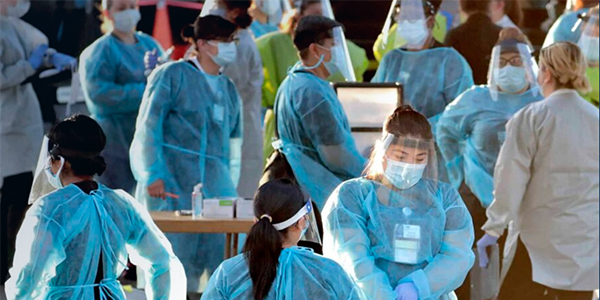
CENTER FOR PUBLIC INTEGRITY - “It is a big leap forward,” said EPI's Wilbert van Panhuis, who is working to get access to the platform for a group of 600 researchers. “They are making major progress in this pandemic,” but much of the data was designed with federal government users in mind, not academic researchers or the public. “It’s a bit disappointing,” he said. “Currently we have to invent that part of the system.”
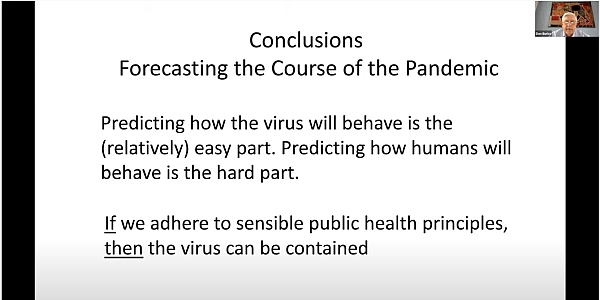
What we have learned during the summer of 2020 that puts SARS-CoV-2 into perspective with other emerging viruses and explores the current state of COVID-19 forecasting for the next few months. IDM's Amy Hartman talks what we know (and don't know) about SARS-CoV-2 and EPI's Donald Burke discusses the epidemiological and environmental factors that will shape the likely phases of the epidemic in our region.